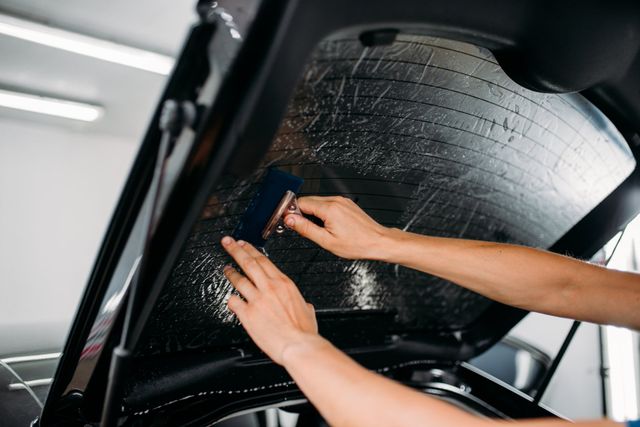Should I Tint My Car Windows?
The decision to tint your car windows is subjective and depends on your personal preferences and needs.
Window tinting can offer several benefits, such as reducing glare, blocking harmful UV rays.
enhancing privacy and improving the overall aesthetic appeal of your vehicle:
However, it's important to consider the legal regulations tint near me regarding window tinting in your area, as there may be specific restrictions on tint darkness and placement.
Additionally, be aware that excessive tinting can hinder visibility:
particularly at night or in poor weather conditions. Ultimately, weigh the pros and cons, and make an informed decision based on your individual circumstances.
How Long Does It Take To Tint A Car?
The time required to tint a car can vary depending on factors such as the size and type of the vehicle,
the number of windows being tinted, the skill level of the installer, and the specific tinting technique used.
On average, a professional car tinting job can take approximately 2 to 4 hours:
However, it's best to check with a local tinting shop for a more accurate estimate based on your specific requirements.
Car Window Tint Buyers Guide:
When purchasing car window tint, consider the following factors:
Legal regulations: Familiarize yourself with local laws regarding window tint darkness and reflectivity.
Make sure the tint you choose complies with these regulations to avoid potential fines or legal issues.
Tint types:
There are various types of window tint available, such as dyed film, metalized film, carbon film, and ceramic film. Each type has its advantages and disadvantages in terms of heat rejection,
UV protection, and durability. Research and compare these options to determine which one suits your needs best.
Tint darkness:
Window tints come in different darkness levels, typically measured as a percentage. Consider factors like privacy,
visibility, and personal preference when choosing the darkness level that suits you. Remember to comply with local regulations.
UV protection:
Look for window tints that offer high levels of UV protection. This helps reduce the risk of skin damage and interior fading caused by the sun's harmful rays.
Heat rejection:
Some window tints are designed to provide better heat rejection, helping to keep your car cooler during hot weather.
Check the heat rejection capabilities of the tints you're considering, especially if you live in a hot climate.
Installation quality:
Proper installation is crucial for the effectiveness and longevity of your window tint. Choose a reputable
and experienced professional installer who uses high-quality materials to ensure a flawless application.
Warranty:
Check if the window tint you're interested in comes with a warranty. A reliable warranty can provide peace of mind and protection against defects or issues that may arise after installation.
Price:
Consider your budget when selecting window tint. Prices can vary depending on the type of tint, brand, and the size of your vehicle.
Remember that high-quality tints may window tint cost more initially but can offer better performance and durability.
By considering these factors, you can make an informed decision and choose the right window tint for your car.

Comments
Post a Comment